We dive into the key insights from an engaging webinar about the findings from Promethean Research’s Digital Agency Web Dev Trend Report: 2024. Commissioned by leading agency operations platform, Productive, the report is a compilation of responses from digital agency leaders, developers, designers and managers, primarily from North America and Europe. An online survey was conducted during August 2024 to collect insights on website project management, including tools, workflows, and trends that these individuals are seeing that impact their work in creating for the web.
BugHerd CEO and former agency owner, Stephen Neville, joined Nicholas Petroski from Promethean Research to discuss the evolving web development and design landscape. With a data-driven approach and decades of experience, the discussion shed light on the tools, trends, and strategies shaping the industry in the coming year. Below is a summary of their insightful discussion.
1. Figma and VS Code lead the way
A standout finding from Promethean’s research is the dominance of Figma as the design tool of choice for most agencies. Overwhelmingly preferred by respondents, Figma has outpaced competitors like Adobe Illustrator due to its collaborative capabilities, such as Dev Mode, which bridges the gap between designers and developers. Figma's accessibility, along with its rapid integration of features like AI, has made it a key player in the design workflow. The tool has not only transformed how designers work but has also streamlined the handover process to developers, ensuring better alignment between teams.
On the development side, Visual Studio Code (VS Code) remains the most widely used text editor, favored by 70% of respondents. Its open-source nature, vast plugin ecosystem, and integration with tools like GitHub Copilot make it an indispensable resource for developers. However, emerging competitors like Cursor.AI are gaining traction for their innovative features. While dethroning VS Code may be challenging, these tools signal that the development landscape remains dynamic.
2. AI and automation - game changers for productivity
AI and automation are no longer buzzwords; they are reshaping workflows in both web development and design. The Digital Agency Web Dev Trend Report: 2024 found that nearly half of the developers surveyed are using AI for code generation, citing significant improvements in efficiency and productivity. Tools like GitHub Copilot have seamlessly integrated into the coding process, enabling developers to complete tasks faster and with greater precision.
However, AI adoption in design has been slower. While some designers use AI for image editing and enhancement, many remain hesitant to embrace it fully. This reluctance could stem from concerns about quality, intellectual property, and the readiness of AI tools in design workflows. Despite these challenges, AI continues to evolve, and it will likely play a more significant role in design processes, especially with tools like Figma actively integrating AI capabilities.
One major takeaway from the webinar discussion is that client expectations are evolving in parallel with AI advancements. Clients are increasingly expecting faster turnarounds and cost savings due to perceived AI efficiencies. Agencies must balance these expectations with the realities of implementing AI in their workflows, often requiring a delicate mix of education and transparency.
AI Assistance - Web Developers

AI Assistance - Designers

3. Agencies are preferring less but more complex projects
Another key trend identified in the research is the shift in agency focus from delivering a high volume of websites to handling fewer but more complex projects.
Most agencies reported building fewer than 25 websites annually, a figure that underscores the changing nature of client demands. This trend reflects a broader shift in the industry, where success is increasingly measured by the quality and complexity of deliverables rather than sheer output.
Promethean Research’s 2024 report How Digital Agencies Grow has shown that specialization, both by industry and service mix, allows agencies to grow more quickly and earn higher margins.
However, smaller agencies, in particular, seem to be leveraging website builds as a gateway to offer additional services like SEO, content creation, and site maintenance, which generate long-term, recurring revenue.
4. CMS and Low-Code/No-Code platforms: What’s trending?
WordPress continues to dominate the CMS market, with 83% of respondents naming it their platform of choice. Its open-source nature, extensive plugin library, and scalability make it a reliable option for projects of all sizes. Legacy platforms like Joomla and Drupal are falling out of favor, with more respondents moving away from these once-popular CMS options.
Meanwhile, low-code and no-code platforms like Webflow are rapidly gaining traction, particularly for agencies seeking faster development cycles and streamlined workflows. Webflow has empowered designers to manage projects end-to-end, eliminating the need for developer intervention in many cases. This capability makes Webflow especially attractive for smaller projects or marketing sites where simplicity and speed are key.
5. Agency challenges and resilience
The webinar touched on the broader economic challenges affecting agencies. Both Stephen Neville and Nicholas Petroski acknowledged that the past few years have been tough, with fluctuating client budgets and shifting market demands. Nicholas shared insights from his research, noting that while some agencies struggled in 2023, others experienced significant growth by adopting clear revenue-generation strategies and focusing on specific niches.
The importance of diversifying revenue streams, particularly through services like hosting, site maintenance, and SEO is crucial now more than ever. By offering these value-added services, agencies can build more predictable income streams and weather economic uncertainty more effectively.
6. Web hosting
Hosting decisions remain a key consideration in web development projects. Most hosting choices are made collaboratively between agencies and clients, with WP Engine, Digital Ocean, and AWS emerging as popular options. However, the hosting market is highly fragmented, with preferences varying widely across agencies.
Hosting can also serve as a recurring revenue stream for agencies. Packaging hosting services into long-term client contracts not only adds value but also provides a steady income source, particularly for smaller agencies.
Hosting Decisions

7. BugHerd and Productive integration enhances agency workflows
The webinar concluded with an exciting announcement: BugHerd and Productive have launched a new integration, designed to streamline agency workflows by combining visual feedback tools with powerful project management capabilities. To celebrate this partnership, both platforms are offering 1-month free trials to each other’s users, providing agencies with an opportunity to enhance collaboration and efficiency.
Find out more about the BugHerd offer
Find out more about the Productive offer
Looking ahead: Preparing for 2024 and beyond
The insights shared during the webinar highlight the rapidly evolving nature of the industry. From the rise of tools like Figma and Webflow to the transformative impact of AI, agencies must stay agile and adaptable to thrive in a competitive market. Focusing on efficiency, diversification, and client education will be critical for success in the year ahead.
If you missed the webinar, the recording is now available. Be sure to take advantage of the free trial offers from BugHerd and Productive to experience how these tools can revolutionize your workflow.
About Promethean Research
Promethean Research helps digital agencies craft data-backed strategies that deliver sustainable growth and reliable margins. Their advice is backed by industry-leading research on 45,000+ digital agencies.
About Productive
Productive is an end-to-end platform built for running a profitable agency. Over 1,500 agencies worldwide trust Productive as their end-to-end tool for agency operations. Learn how Productive can shape your agency’s future here.




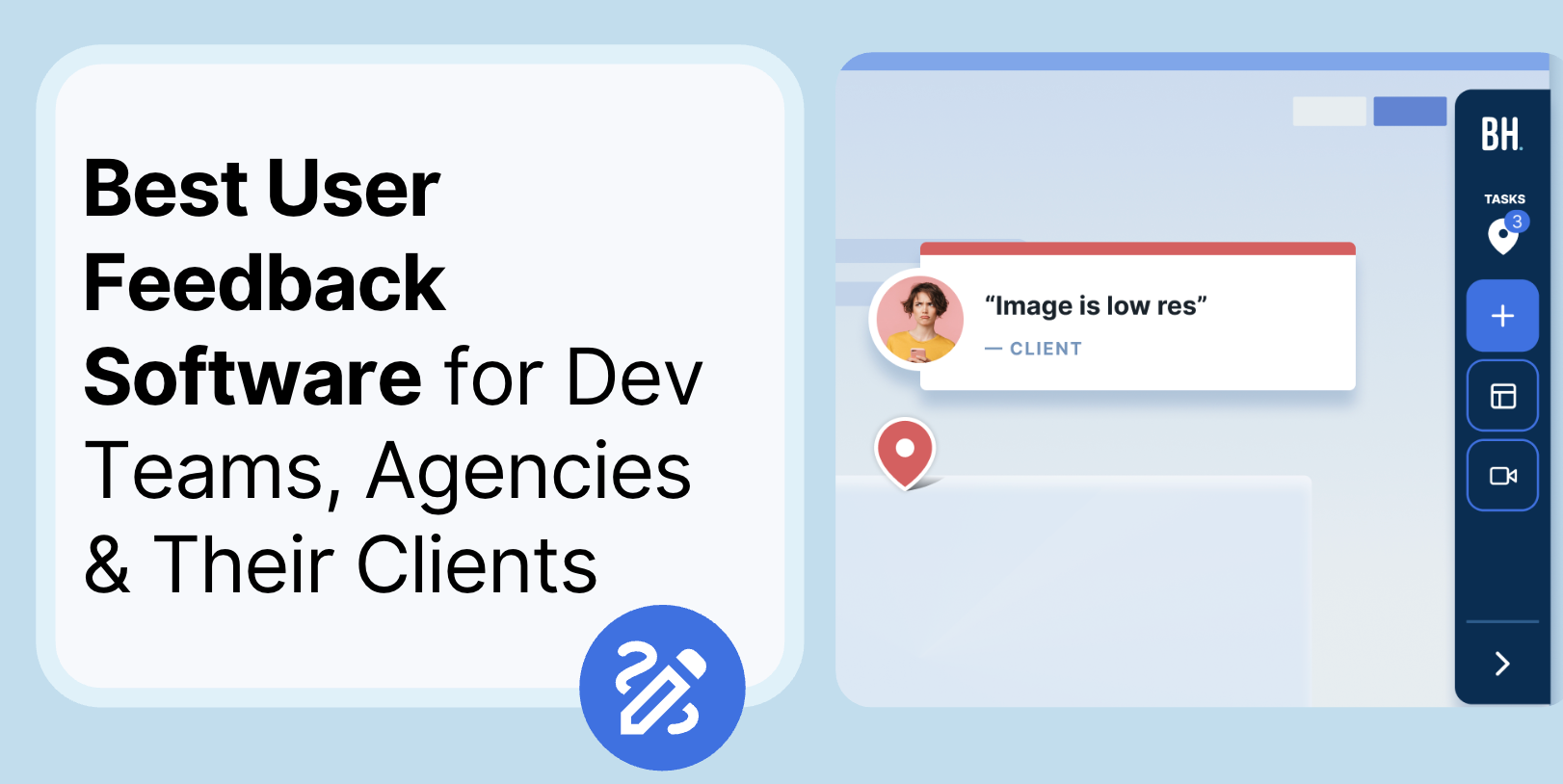

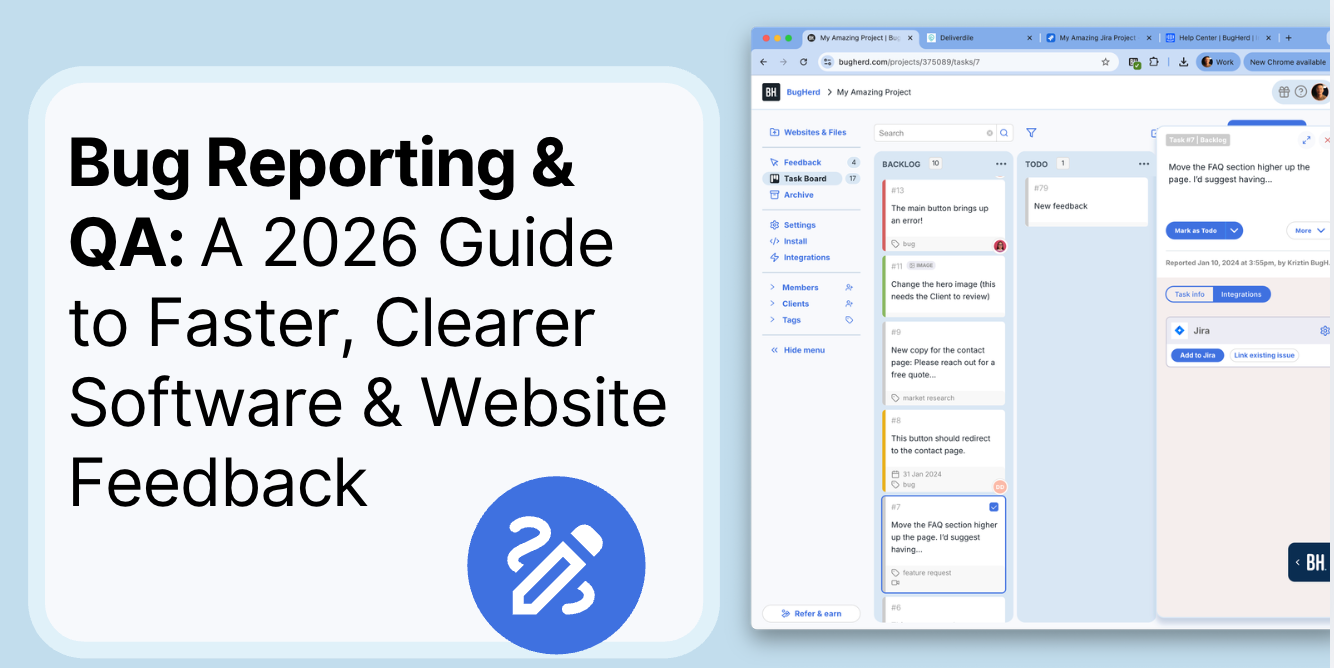

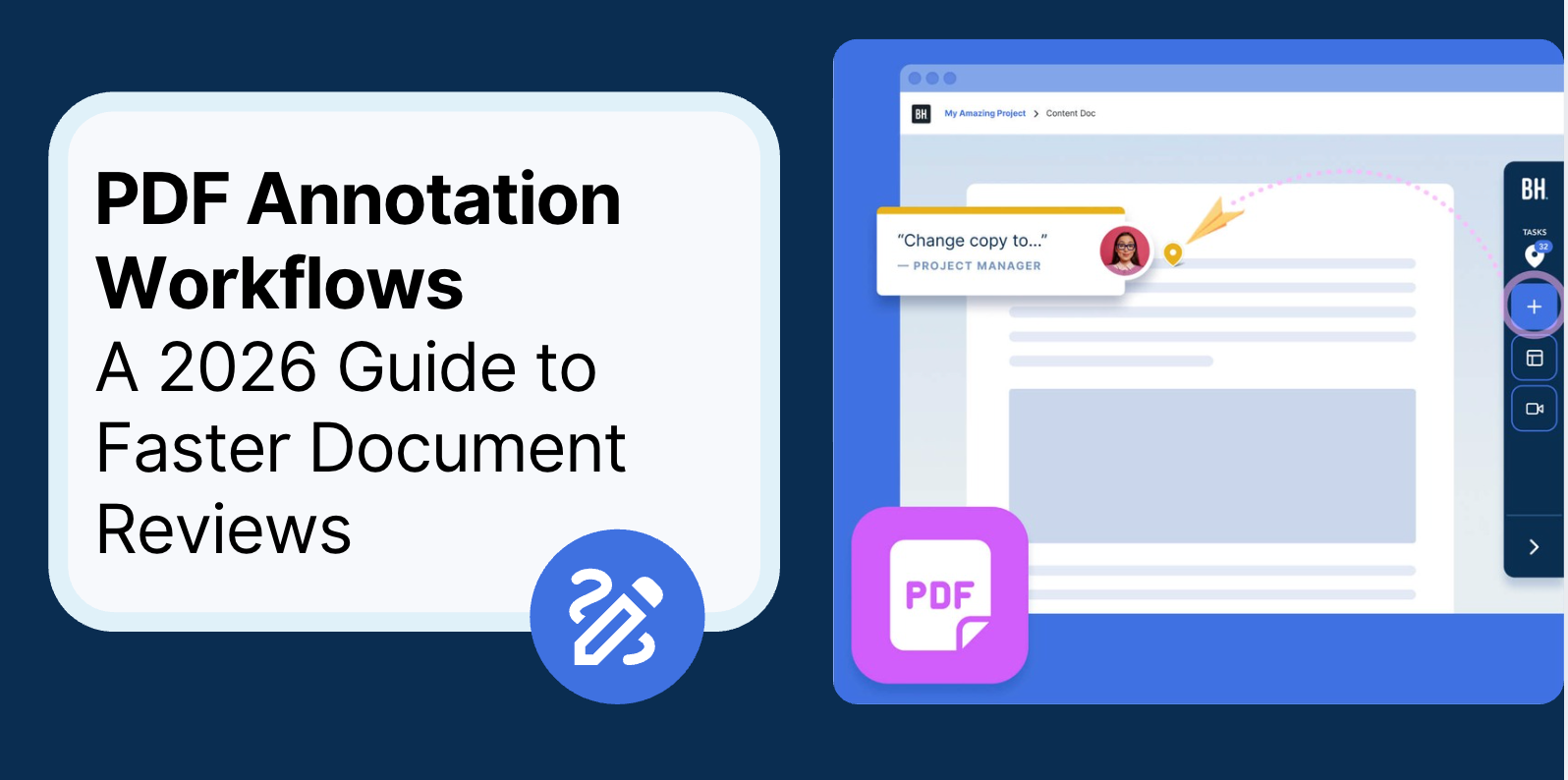
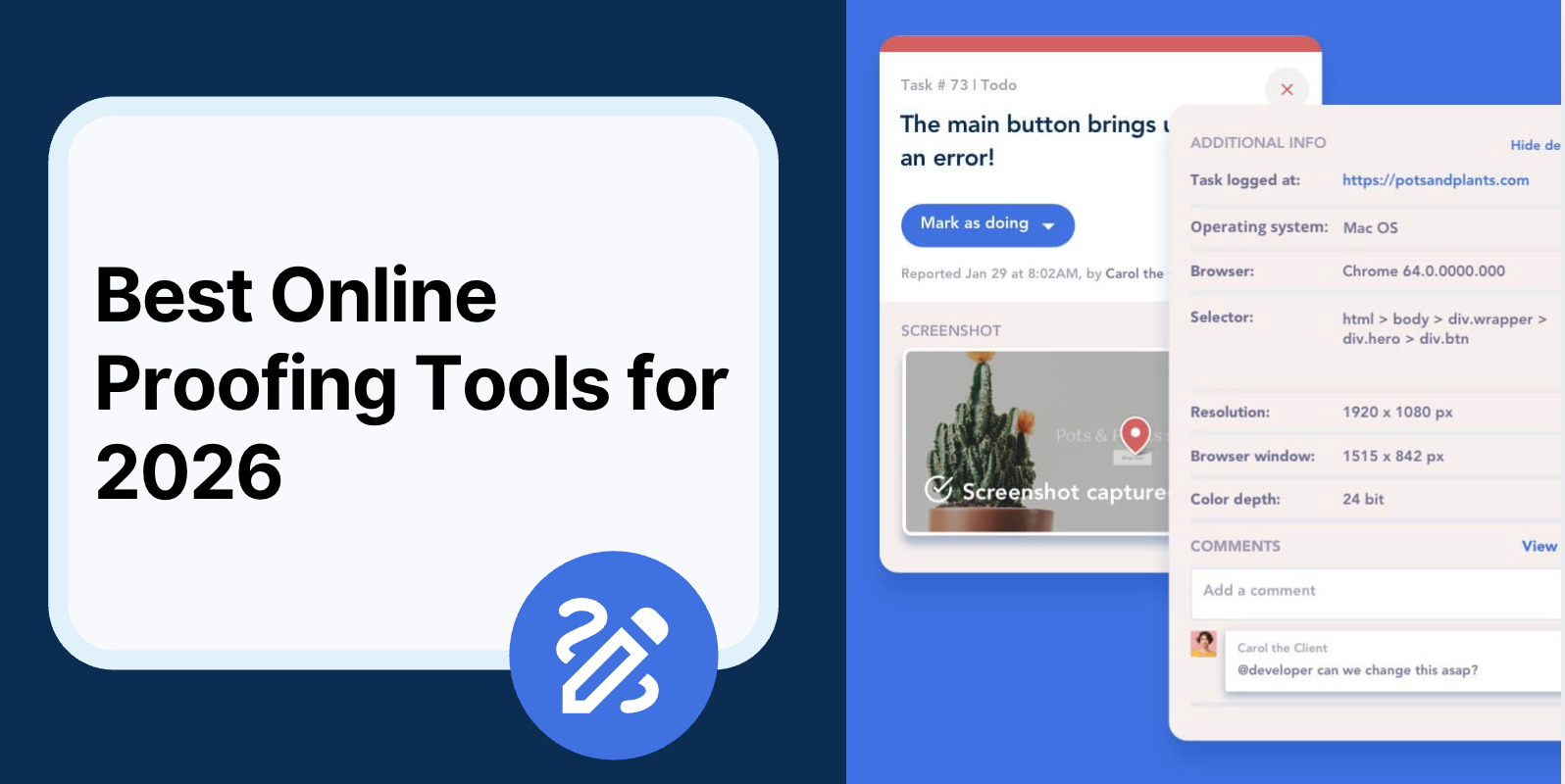
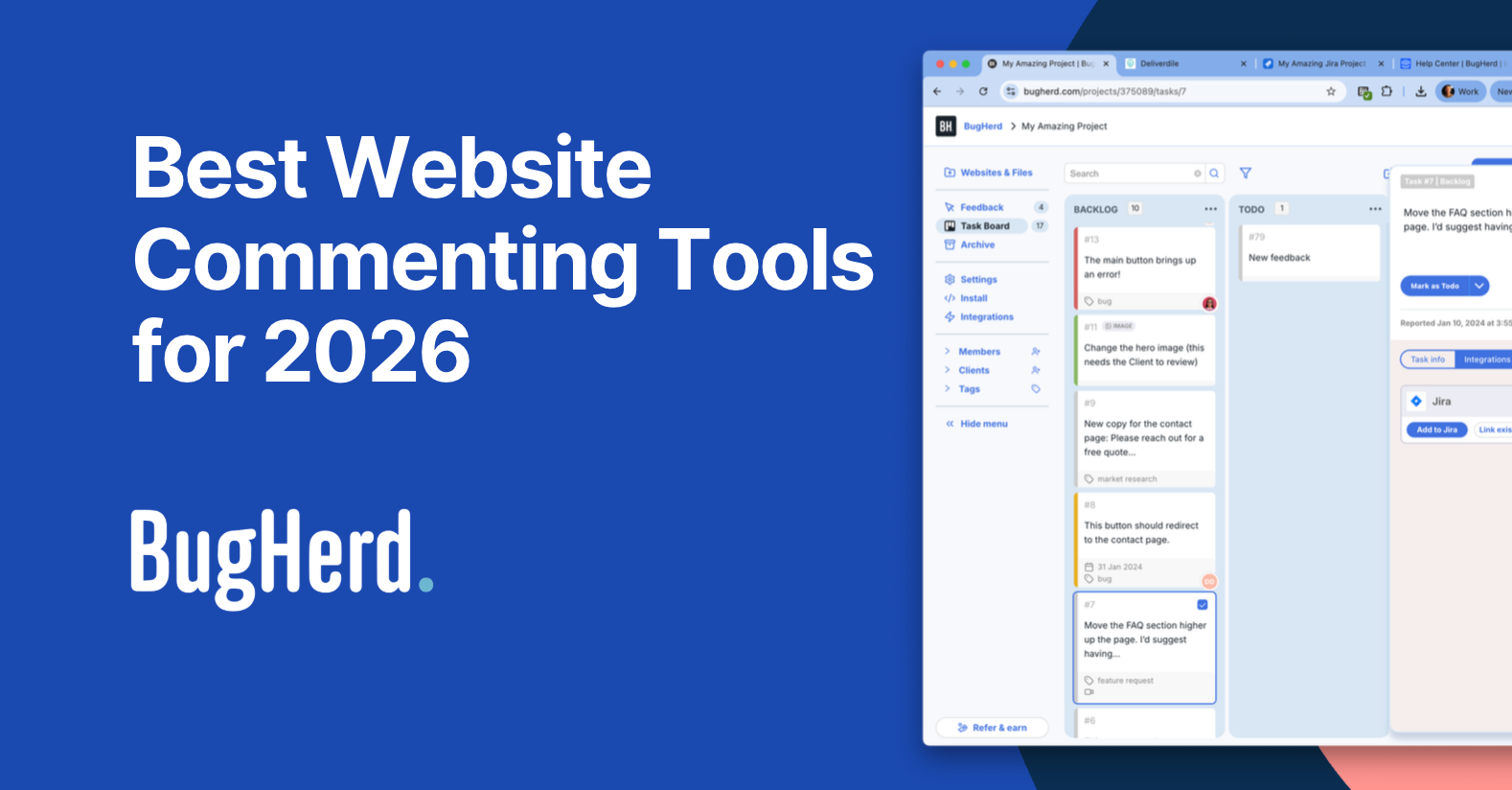
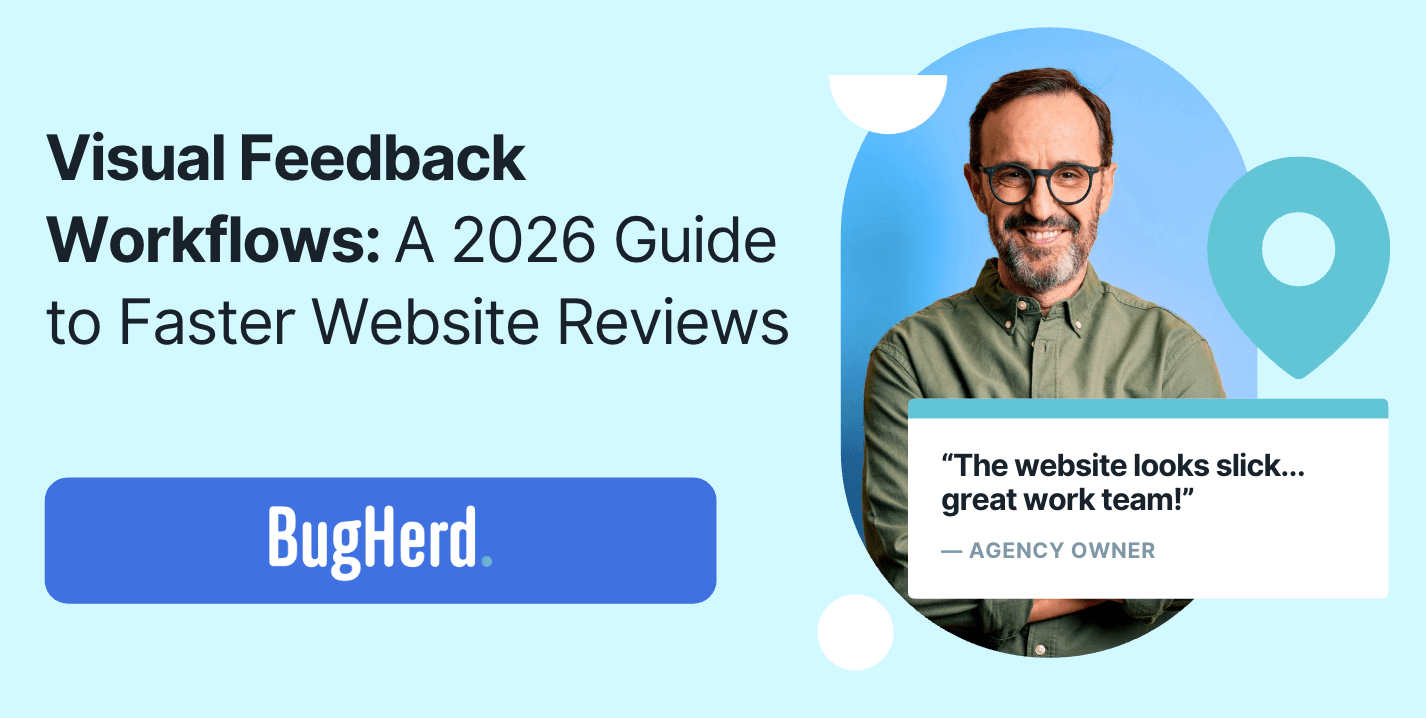



But don't just take our word for it.
BugHerd is loved by 10,000+ companies,
350,000+ users across 172 countries.
4.8/5
4.7/5
4.5/5
5/5
8.7/10
Sam Duncan 📱📏 🌱
@SamWPaquet
"@bugherd where have you been all my life??
We just migrated our bug tracking over from Asana and have at least halved our software testing time🪳👏📈. "
Ashley Groenveld
Project Manager
“I use BugHerd all day every day. It has sped up our implementation tenfold.”
Sasha Shevelev
Webcoda Co-founder
"Before Bugherd, clients would try to send screenshots with scribbles we couldn't decipher or dozens of emails with issues we were often unable to recreate."
Mark B
Developer
“A no-brainer purchase for any agency or development team.”
Kate L
Director of Operations
"Vital tool for our digital marketing agency.”
Paul Tegall
Delivery Manager
"Loving BugHerd! It's making collecting feedback from non-tech users so much easier."
Daniel Billingham
Senior Product Designer
“The ideal feedback and collaboration tool that supports the needs of clients, designers, project managers, and developers.”
Chris S
CEO & Creative Director
“Our clients LOVE it”
Emily VonSydow
Web Development Director
“BugHerd probably saves us
at least 3-4hrs per week.”